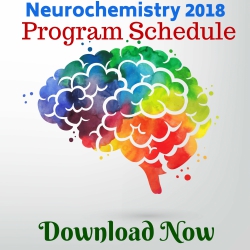
Natasha Yasmin
University of Birmingham, UK
Title: Prospective memory and its association with frontal lobe functioning in schizophrenia and bipolar disorder
Biography
Biography: Natasha Yasmin
Abstract
Background & Aim: Prospective memory (PM) deficit have been well documented in schizophrenia so far, but there is a lack of research evidence of PM functioning in bipolar disorder and its relationship with frontal lobe functioning. Both group share similar clinical symptoms and cognitive profiles, depicting impairments in memory and frontal lobe functions like planning/
executive functioning and attention and concentration, and these aspects are found to be significantly related to aspects of PM functioning. The study therefore aimed to investigate event-based (EB) and time-based (TB) PM functioning in schizophrenia and bipolar disorder, and its association with frontal lobe functioning.
Methodology: To assess PM functioning, an experimental task incorporating both event- and time-based prospective memory was developed and administered on 30 schizophrenics and 30 bipolar patients, and on 30 non-psychiatric individuals (control group). To further examine the relationship of PM and frontal lobe functioning, participants were also assessed using
neuropsychological tools, viz, Tower of London(TOL), N-Back Test and Triads Test.
Findings: Patients with schizophrenia and bipolar disorder were found to have impaired PM functioning when compared to control group. The results also support the importance of frontal lobe process like planning, attention, and working memory in having a significant effect on prospective remembering.
Significance: Impairments in frontal lobe functioning is commonly found in patients with schizophrenia and bipolar disorder. The current study showed that PM deficits are also found in the same population and it shares a significant relationship with frontal lobe impairments. This emphasizes the need to include assessment of PM functioning as a cognitive marker for these populations to prevent future cognitive and frontal lobe impairments. There is also a need for conducting additional research for developing rehabilitation methods for the same in these clinical populations to improve their quality of living and a better
rehabilitation prognosis.

